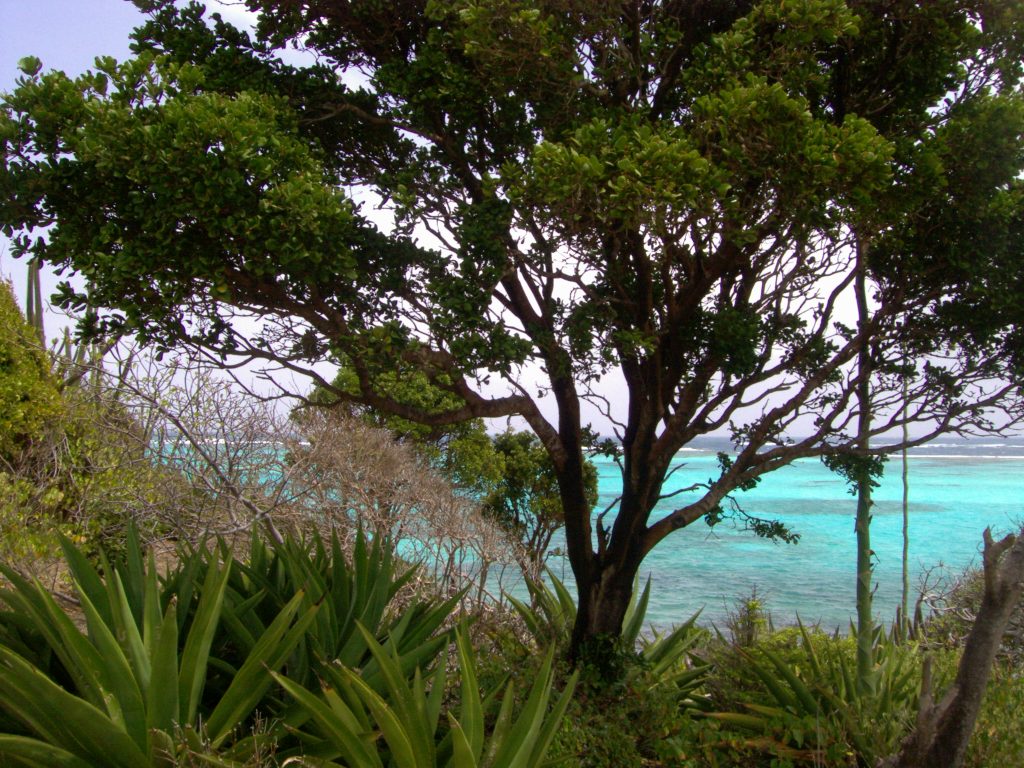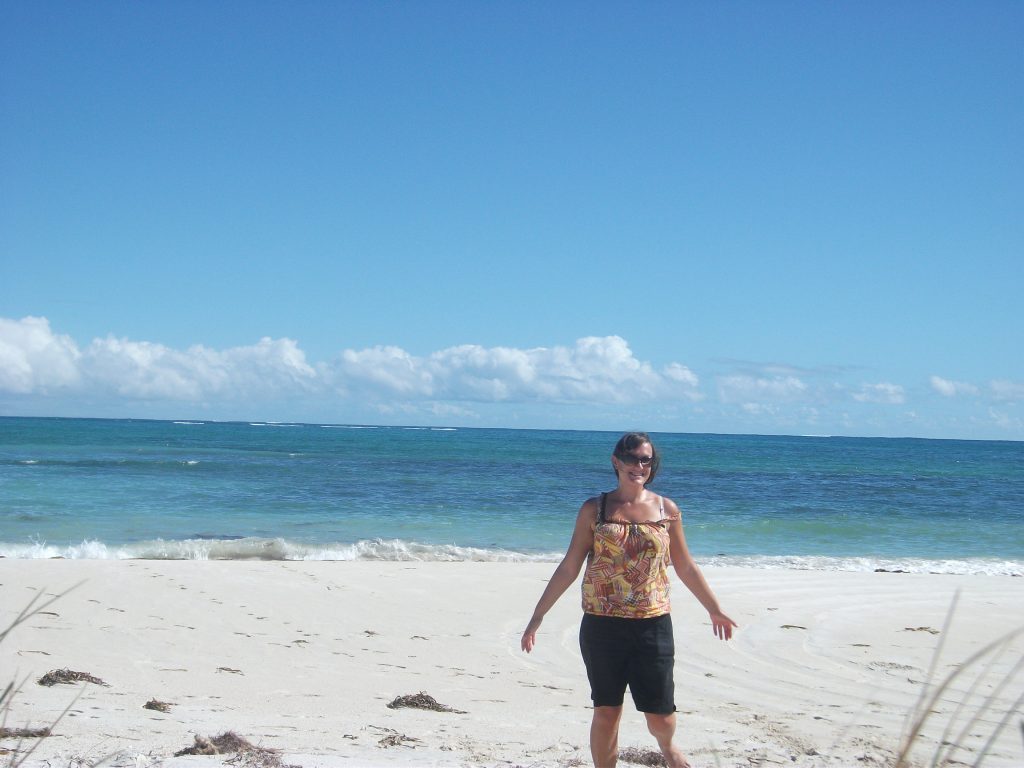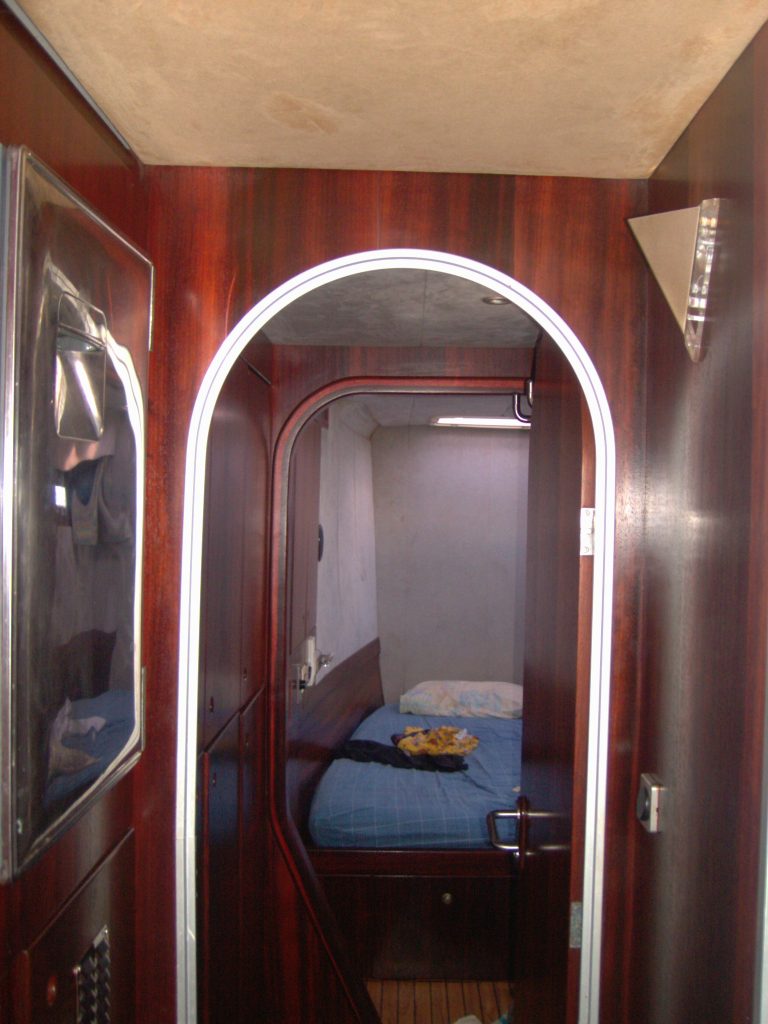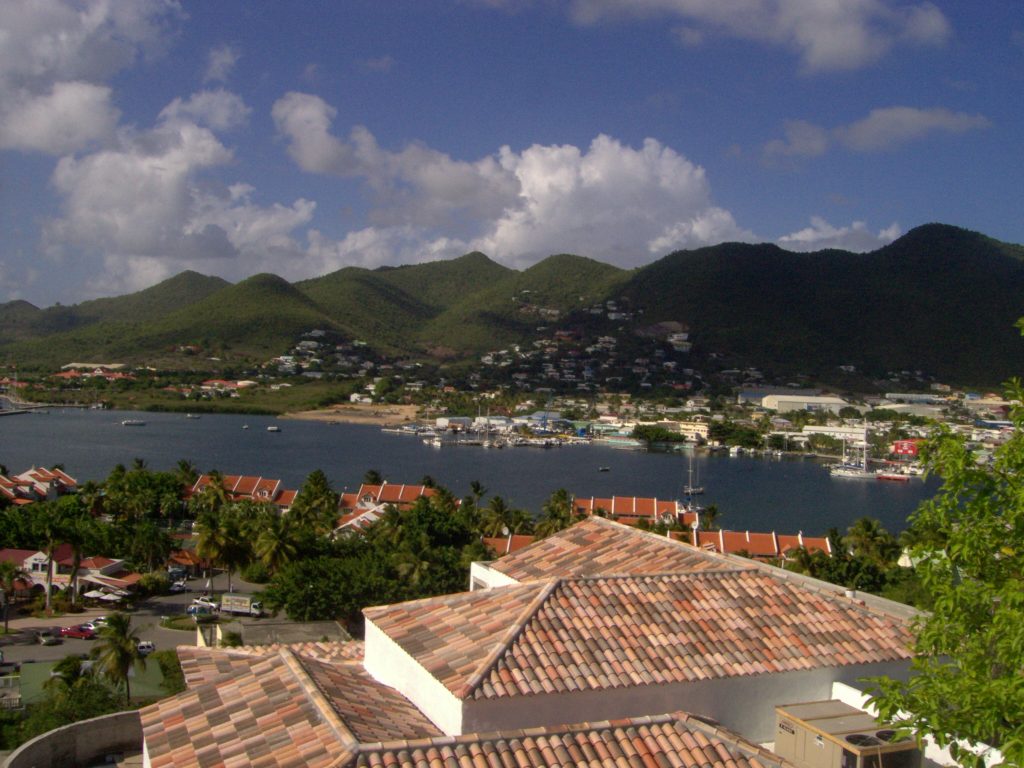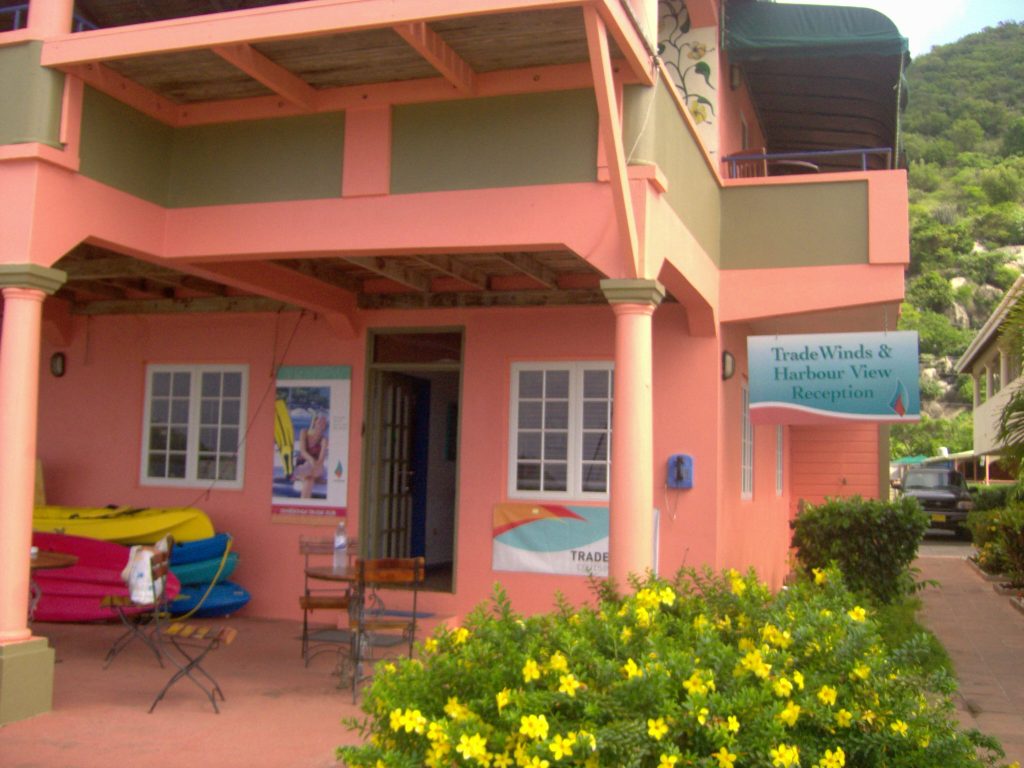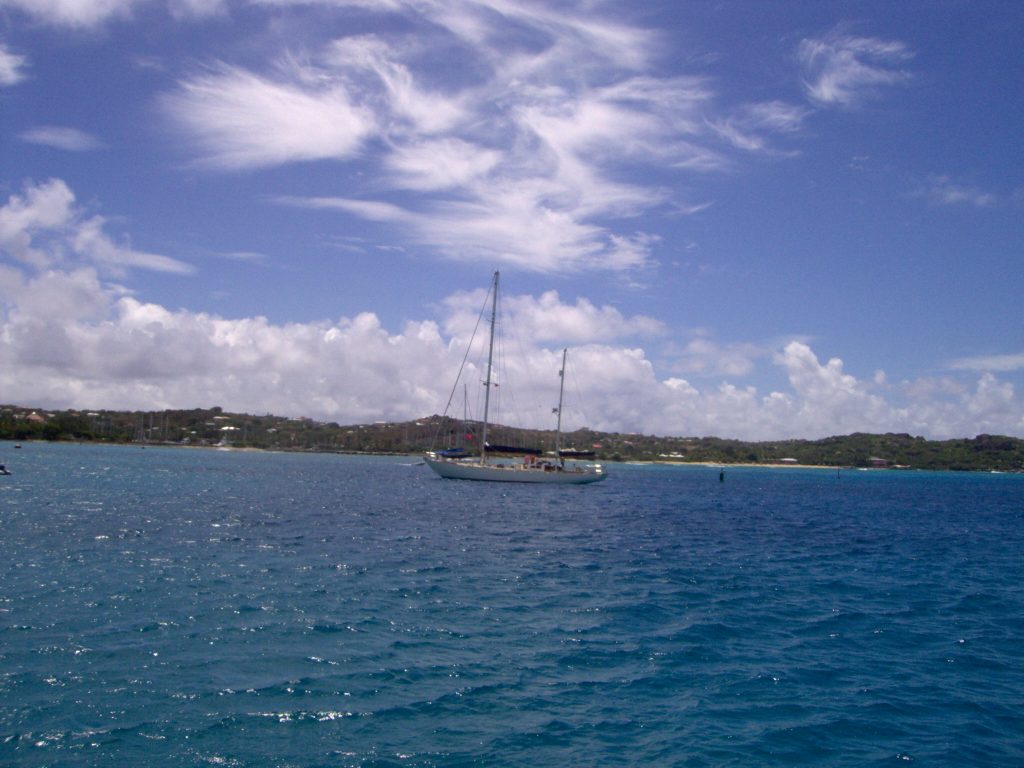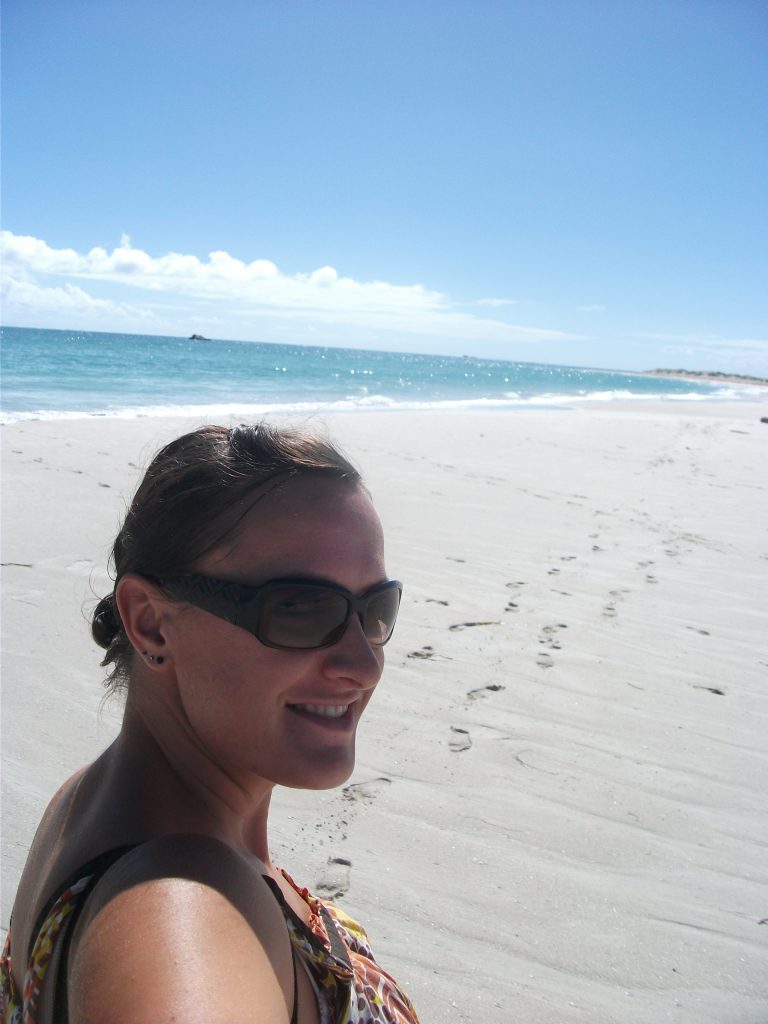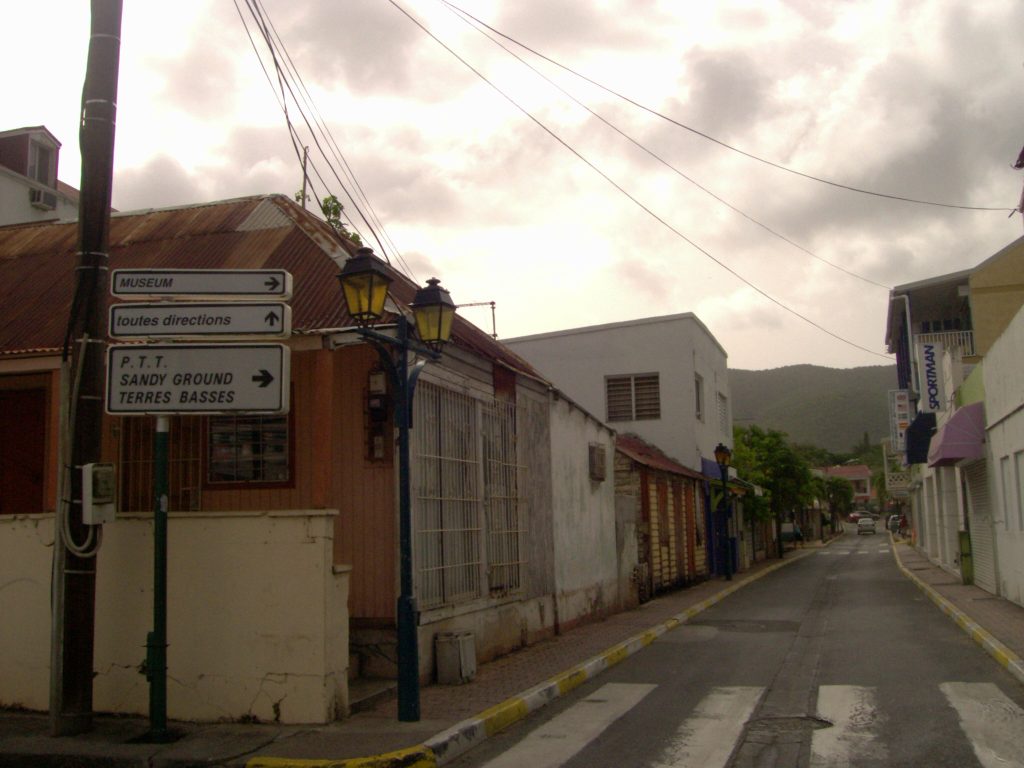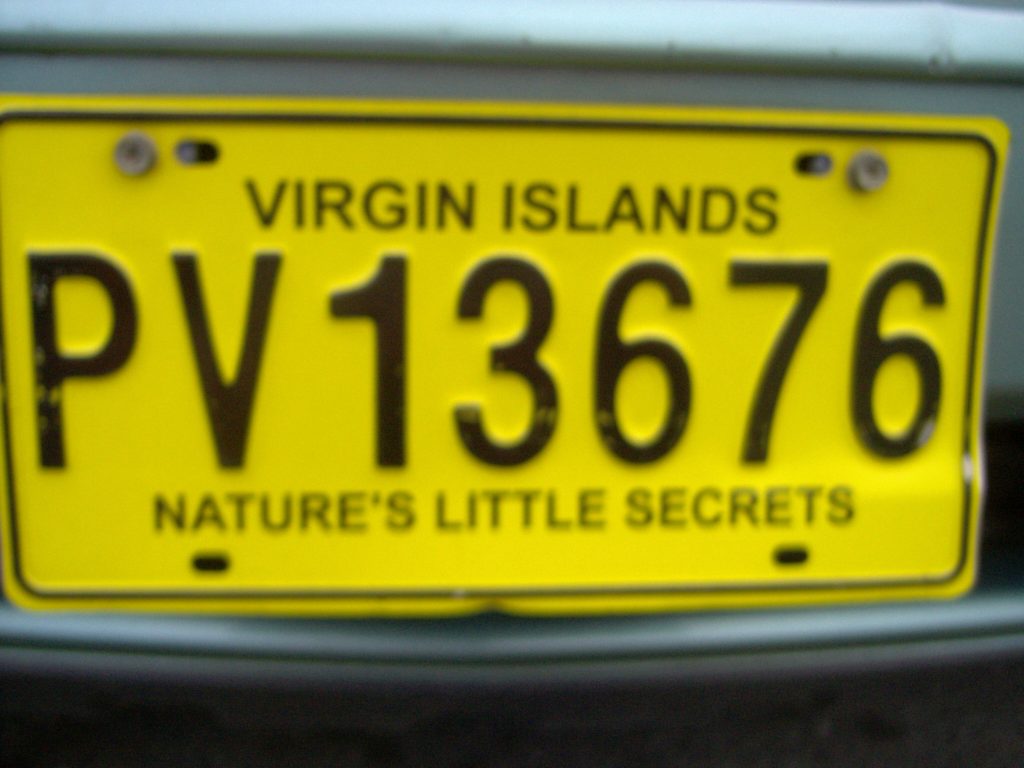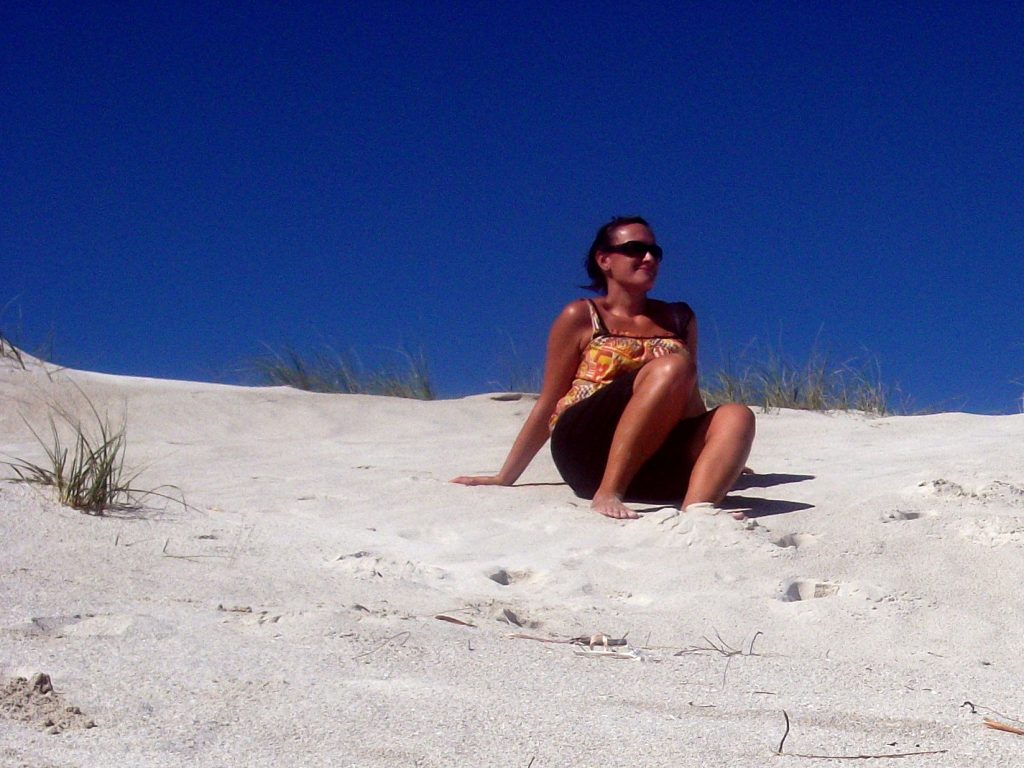
In 2007, Sonja completed a five-month internship abroad in the Caribbean. Born in Stuttgart, she was 24 years old at the time and in the middle of her studies. Travelling at that time was still a bit of an adventure: hardly anyone had a smartphone – Apple launched the first iPhone ever in 2007 – and the internet was not yet as full of travel reports and information as it is today.
At the time, Sonja was studying “Business Administration – specialising in Tourism and Transport” at Worms University of Applied Sciences and had to complete either an internship in Germany or abroad or a semester abroad at another university. It was immediately clear to her that she wanted to do an internship abroad. She secured an internship with a catamaran tour operator in various locations, which enabled her to work on three different Caribbean islands during the five months of her stay: Bequia (St Vincent & the Grenadines), Tortola (British Virgin Islands) and St Martin (part of France).
The working hours were similar to a job on the German labour market: eight hours a day, five days a week from Tuesday to Saturday. Saturdays were always Sonja’s busiest days, as the catamaran tour groups returned and new ones set off. She received $300 per month and accommodation free of charge, which meant overnight stays directly on the catamaran, which was in the marina for maintenance and basic cleaning. The disadvantage of this type of accommodation was that the catamaran had to be changed every Saturday as they rotated with tours.
What made you decide to do an internship in the Caribbean?
I hadn’t been abroad much at the time, either on holiday or for other reasons, and wanted to see and get to know the world. I applied by email to a wide range of companies in the tourism sector in English-speaking, southern holiday destinations. I think my fellow students thought I was totally naive. Maybe I was a bit naïve, because in fact I only had one email confirmation and had written to the managing director several times. I never received a contract. So it could well have happened that I would have arrived there and they wouldn’t have been interested in my labour. Fortunately, that didn’t happen.
What did you plan before the trip?
I did some research on the Internet, but it has to be said that there wasn’t much to read about stays abroad in the Caribbean on the Internet back then. All in all, I went into it relatively naively. I booked my flights and knew that I would have accommodation on site. I let the rest come to me. From today’s perspective, that was a little less preparation, but everything went well. I didn’t really prepare for the job on site either. As the lingua franca was English, sometimes even German, and I was always good at English, I didn’t prepare myself for the language either.
What did your luggage consist of?
With two large suitcases plus hand luggage, I had far too much luggage with me. Shopping opportunities were very limited on the islands and I didn’t know how often I could do laundry. But that was totally unnecessary and a hindrance. My luggage consisted almost exclusively of clothes and the necessary cosmetics. Today I know: less is more! As I mentioned, I had hardly any travelling experience. And I have to add that I hadn’t planned to move between three locations. That only materialised on site. In the end, I left one suitcase in Bequia as the plan was to return there. That didn’t happen either, so a colleague later brought my suitcase back to St Martin because he was travelling there anyway. As you can see: So much luggage only causes trouble.
But surely you also had technical devices with you?
Yes, I had my mobile phone, my digital camera and my laptop in my luggage. The laptop helped me to fill the time I spent alone, e.g. sometimes after work, to upload photos and stay in touch with friends and family. Nowadays, all of that would only be covered by my smartphone.
What kind of landscape did you move around in during your job?
I worked for a catamaran tour operator, so my job took place a lot on the water because. Our office was always right by the sea in a marina. However, I have to say that I hardly experienced this as a particular highlight. A marina is not a beach, but rather a small harbour. And there was never a beach within walking distance! That too is the Caribbean, not just palm trees and beaches. Away from the tourist beaches, the Caribbean is also not what you imagine it to be. It is sometimes very barren due to the drought. Depending on the island, it is even mountainous inland, but more natural. Life on the smaller islands is clearly centred around the water.
What means of transport did you use on the trip?
I travelled to the Caribbean by plane and ferry. Locally, I travelled more varied: I did a lot of the routes on foot, which was sometimes very strenuous as it was mountainous and hot, but I got to see a lot of the surroundings. I also used local buses – a great experience, as these are minibuses that are rarely used by tourists. Unfortunately, these buses are not very reliable and don’t have a timetable. I also used taxis and occasionally a car for shopping for work.In any case, I occasionally travelled with locals in their cars, as it is still common practice in the Caribbean to simply stop and give pedestrians a lift. Of course, I also travelled a lot on the water: by catamaran on excursions, water taxi and dinghy.
Who did you meet during your stay?
I had the most contact with colleagues, most of whom were from Europe and South Africa. However, I also had a few colleagues who came from the Caribbean. Interestingly, the latter were also all “immigrants”, as they originally came from another Caribbean island and lived there for work.
The culture in the Caribbean is very open, tolerant, friendly but direct. Work and money are not the most important things, but family and friends. On Tortola, I had the closest contact with our two cleaning ladies. They were so nice to me and we got on really well. Jenny, for example, also took me to local parties. She came from St Lucia herself and grew up in poor circumstances. She wasn’t able to make any great leaps with her cleaning job either, but she enjoyed her life as it came! Unfortunately, contact with everyone broke off immediately after I left. There were no social media or messenger services back then. But I still think of the people today and I hope they think of me too.
What was the best thing about the trip?
The experience of being on my own was very impressive for me. I didn’t know anyone, I was in a foreign culture, far away from home. My life was so completely different to everything I knew. Something like that always has a positive impact on you.
Were there any negative events during your internship in the Caribbean?
I had a supervisor at one location (who happened to be German) who I didn’t get on well with – at least not at work, because we got on well in our private lives. She didn’t trust me or anyone else, controlled my work, kept me down – in short: I couldn’t do anything right. I wasn’t used to that, because I know that I always give 100% and work reliably. I had also received this as feedback in various previous jobs. After a few weeks with this line manager, I decided that I no longer wanted to work there as it wasn’t good for me mentally. I therefore asked to be transferred to another location. That’s what happened and I was super happy there.
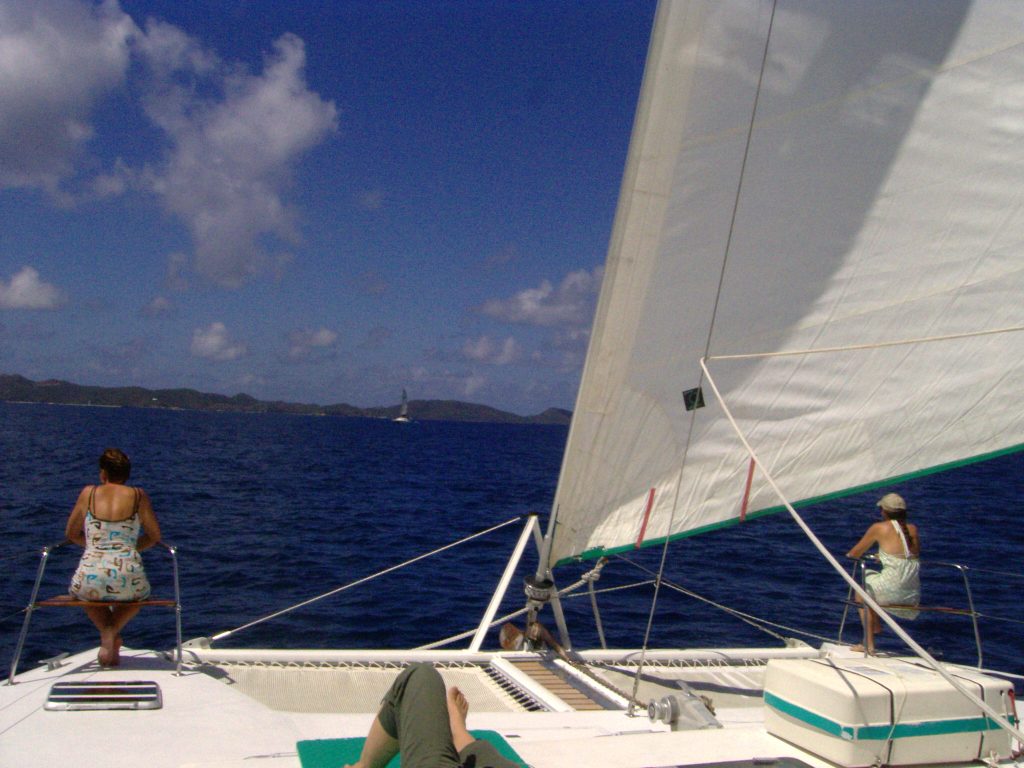
What did your time in the Caribbean teach you?
I realised for the first time what a capitalistic, sometimes selfish culture we have. The main goal for most people in the West is to make a lot of money. I didn’t realise that before. I think people in non-Western, less wealthy countries are much happier, even if we perceive them as poorer. My lifestyle and attitude haven’t completely changed as a result of my experience, but I would say that it has shaped me, like many other experiences in my life. I try to enjoy what I have and not strive for worldly things. Consumption hardly plays a role for me.
The stay also made me realise that going on holiday to a place is different from working there. The idea of living and working where others go on holiday is too short-sighted. You don’t have all the amenities that come with a modern, rich welfare state like Germany anywhere else. You have to realise that.
What do you think of Slow Travel as a form of travel?
The idea is great. As the term suggests, you need time for it and you don’t always have it. I think the form of travel you choose depends not only on your own wishes and ideas but also very much on your life situation, for example whether you have a stressful family life. Slow Travel as an alternative to package holidays is absolutely worth supporting, because who makes money from a package holiday – usually large, foreign travel companies.
Do you see yourself as a slow traveller?
On a scale of 1 (THE package tourist) to 5 (100% slow traveller), I am perhaps a 5-6. I have done many types of trips. Some I liked, some I didn’t. It depends on so many things, like the destination or the people you’re travelling with. I always find it important to get to know the place and the people and to learn about the culture and history. Nevertheless, I want to experience a lot, see beautiful places and do activities that I enjoy or sometimes just relax. I can enjoy many things and places, no matter how I explore them.
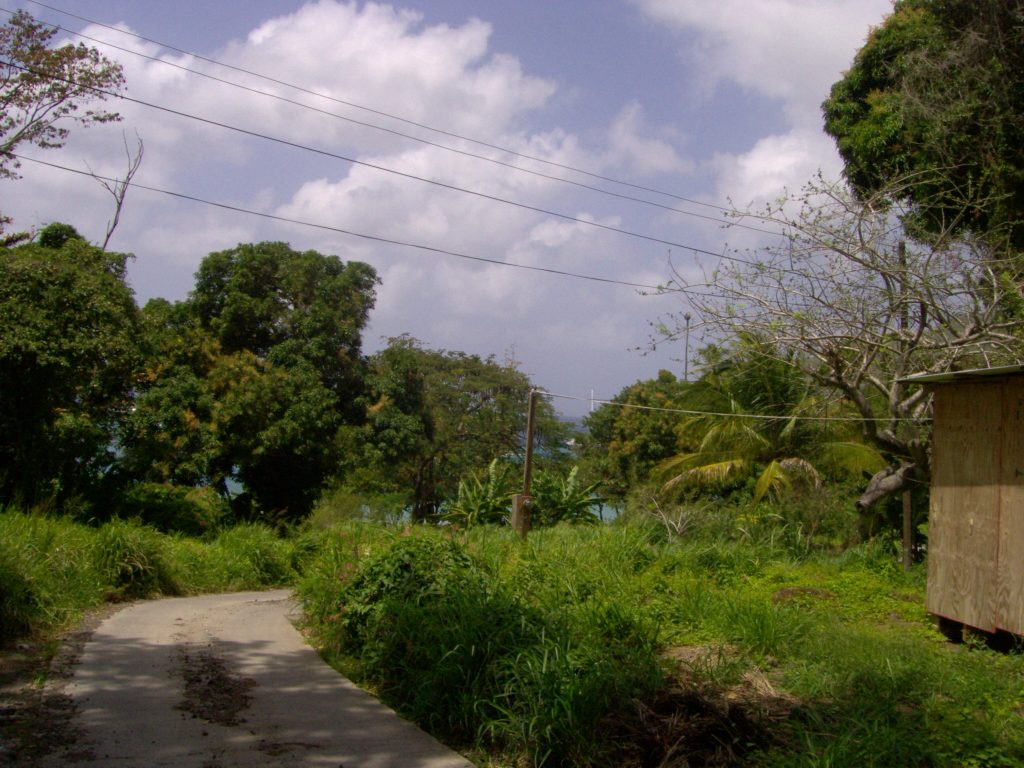
Licence plate of the British Virgin Islands. Pictures: Sonja H.
Interview by Anika Neugart.
If you enjoyed this article, you might also like …
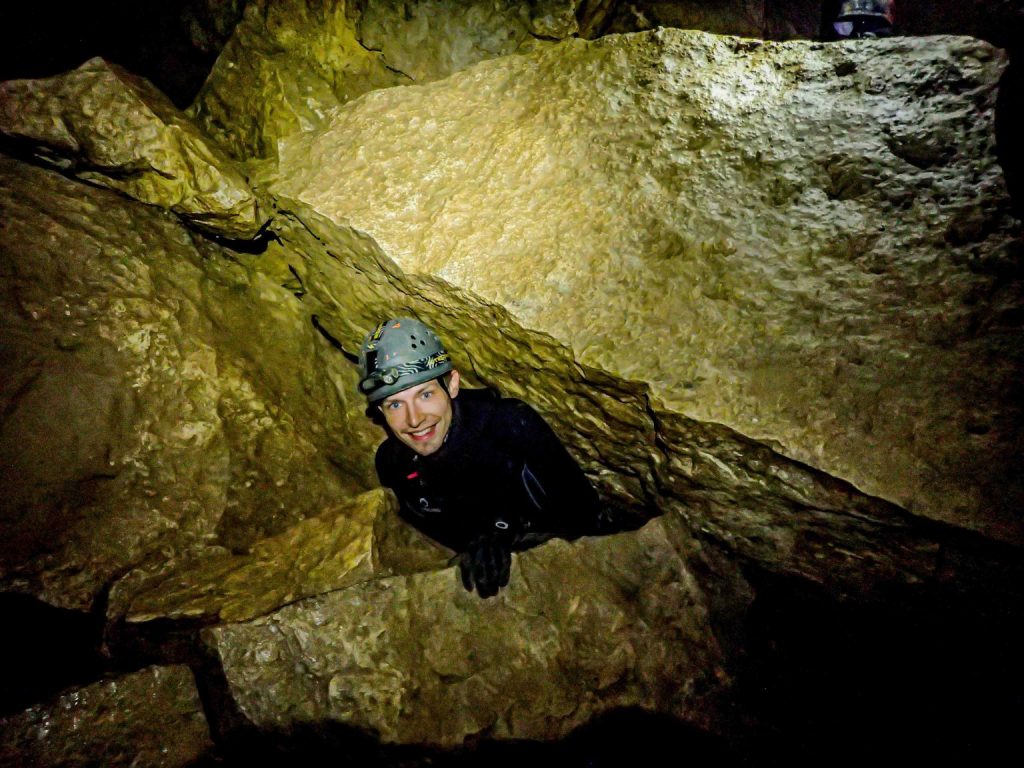
27 January 2021
Cave expeditions. Only for adventurers?
Jakub Kaleta has an unusual hobby. Since about five years, he is exploring caves on his own. These are short day trips, which take him out of his daily life into an alien world. It is a thrill and nature experience at once – a real adventure.
